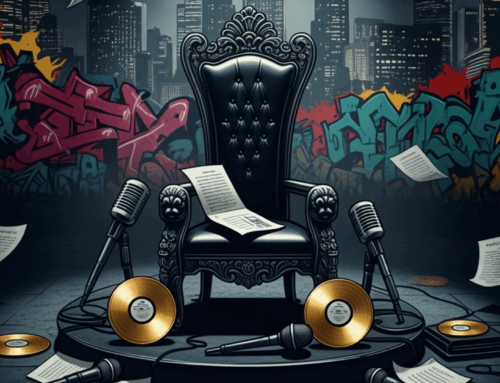 For every positive action, there’s a negative reaction. For every shiny side of a coin, there’s a tarnished one. No matter which metaphor you use, there’s no denying that 2012 was a paradoxical year for electronic dance music. On one hand, increased record sales, festival attendance, and inclusion at U.S. award shows push the genre in a positive direction, one signifying acceptance on par with rock, pop, and hip-hop music. On the other, the amount of contortion and dilution point to a darker side of acceptance – that you need to go through a makeover to fit in. Just as the mousy heroine in a bad teen movie must lose her glasses and dye her hair to join the popular crowd, electronic music becomes David Guetta.
For every positive action, there’s a negative reaction. For every shiny side of a coin, there’s a tarnished one. No matter which metaphor you use, there’s no denying that 2012 was a paradoxical year for electronic dance music. On one hand, increased record sales, festival attendance, and inclusion at U.S. award shows push the genre in a positive direction, one signifying acceptance on par with rock, pop, and hip-hop music. On the other, the amount of contortion and dilution point to a darker side of acceptance – that you need to go through a makeover to fit in. Just as the mousy heroine in a bad teen movie must lose her glasses and dye her hair to join the popular crowd, electronic music becomes David Guetta.
2012, even without looking back, was a turning point for electronic dance music. Now as the year comes to a close, we can look back on everything good (and so very bad) about the past 12 months.
The Good:
“Levels”. Can one song define a whole year? In this case, yes. Avicii’s mega hit, without vocals as a driving force, pushed past the mess Guetta created in 2011. The hit also proves that electronic music doesn’t need a singer in front to garner attention. Although Avicii’s live DJing has been described as hit or miss, this young Swede’s hit ushered in the era of the producer prodigy, with Madeon, Porter Robinson, and Zedd following at his heels.
Festivals. Ultra and Electric Daisy Carnival have blossomed into must-go monstrosities. With rave-meets-rock concert formats showcasing established artists and up-and-comers, EDM festivals have turned into a fully immersive, genre-, and generation-spanning experience.
Music Videos. The dance, dance, dance era is finally over. You want your EDM videos with plot? 2012 gave you that.
Better Record Sales. Although nearly all DJs make their revenue from live performances (see the festival explosion above), true respect, in the mainstream sense, comes from record sales. This year, Guetta’s Nothing But The Beat, Calvin Harris’ 18 Months, and Deadmau5’s 4×4=12 cracked the most definitive U.S. chart, the Billboard 200.
The Bad:
David Guetta. Yes, he had a hit album and singles. Yes, he draws large festival and club crowds at Ibiza and collaborates with better performers, like Avicii and Nicky Romero. But, 2012 showed there’s no stopping the Nickelback of electronic dance music. And, unfortunately, no force has been too powerful to prevent his craptacular singles, four-minute tracks attempting to pass pop off as dance music, from climbing up the charts.
Festivals. They draw huge crowds (Ultra and Electric Daisy are both over 100,000 at this point) and bring in equally-large amounts of revenue. Yet, this year saw Live Nation buy up strictly-EDM festival promoters, like Hard Events and Cream Holdings. The now-expansive lists of performers additionally mean each DJ is reduced to one hour, at most, on stage. While the festival symbolizes the true ascent of EDM, it also embodies its downfall.
Award Shows. Who wants a participation trophy? 2012 was the year the American Music Awards and the MTV Video Music Awards finally recognized electronic music as a legitimate genre. While the Grammys and Billboard Music Awards have had electronic dance categories before, talk about belated – and backhanded – acceptance.
Collaborations. Forget Spy vs. Spy. 2012 featured DJ vs. Pop Star. And, who wins? Rihanna, Usher, and Nicki Minaj get dance beats to briefly capitalize on a trend, and the producer? Although Guetta cloyingly grins through his role as second fiddle (see at all this money I’m making?), it’s rather disheartening to see quality production pushed so far back in a mix.



